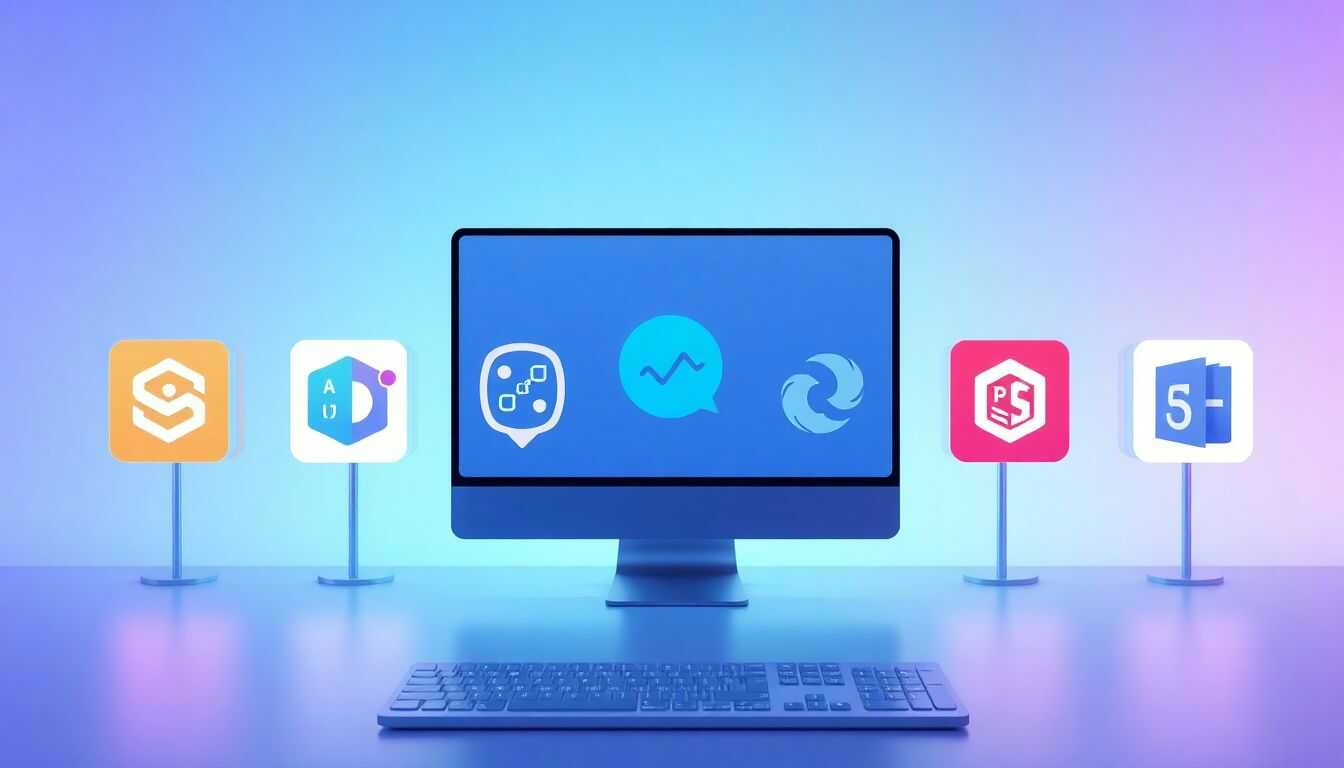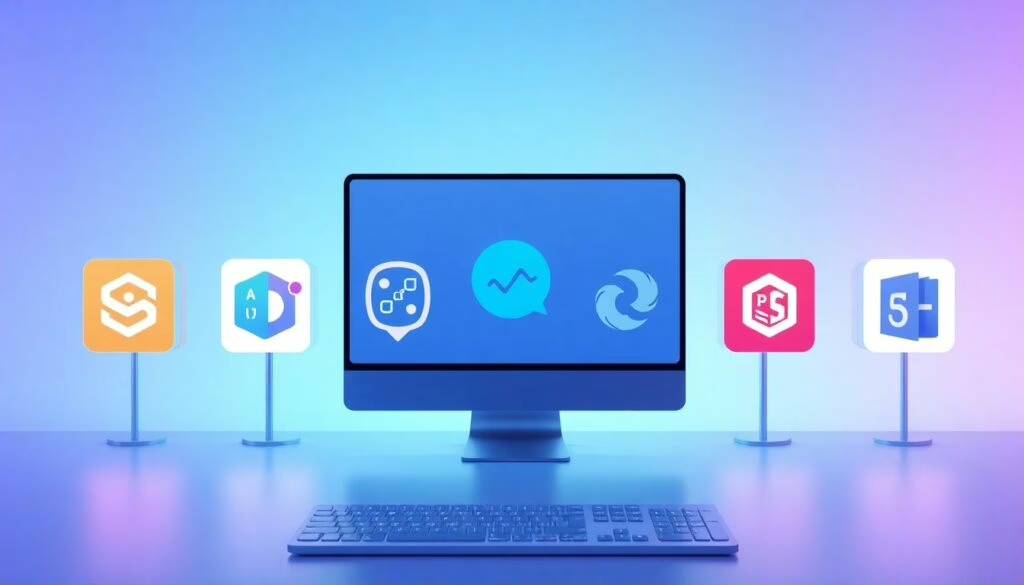Navigating print design requires the best tools to create stunning visuals. As the demand for print media evolves, so too does the software relied upon by designers. Print design software is crucial not just for creating images, but also for handling complex layouts and print-ready materials.
The Rise of Digital Printing and its Impact on Software Needs
Digital printing is changing the game. The technology allows for more customization, faster turnaround times, and lower costs. This shift demands print designers to adopt software that meets these new needs.
Essential Software Skills for Print Designers in 2025
As a print designer, mastering software is key. Familiarity with both vector and raster graphics tools ensures you can tackle different projects. Additionally, understanding layout software helps in managing print production effectively.
This Article’s Focus: Top 10 Software Choices and Why They Matter
This guide highlights ten essential software options for print designers. Each offers unique features that cater to various aspects of print design.
Adobe Creative Suite: The Industry Standard
Indispensable Adobe Applications for Print Design
- Photoshop: Ideal for photo editing and composition.
- Illustrator: Best for creating scalable vector graphics.
- InDesign: A powerful tool for page layout, especially in magazines and brochures.
Mastering Adobe Creative Cloud: Tips and Tutorials
A wealth of tutorials exists online for mastering Adobe applications. Joining community forums can also provide tips from experienced users.
Adobe’s Future in Print Design: Predictions and Trends
Adobe continues to innovate, integrating AI and machine learning features. Expect enhancements that simplify workflows and improve productivity.
Vector Graphics Editors Beyond Adobe Illustrator
Exploring Affinity Designer: A Powerful and Affordable Alternative
Affinity Designer offers advanced vector capabilities for a one-time fee, making it attractive for budget-conscious designers.
CorelDRAW: A Veteran in the Vector Graphics Field
CorelDRAW remains popular, especially in the custom printing industry. Its features cater well to professional and amateur designers alike.
Comparing Vector Graphics Editors: Features and Pricing
When comparing options, consider:
- Cost: Affinity Designer is less expensive than Illustrator.
- Features: CorelDRAW provides unique tools suitable for specialized tasks.
Raster Graphics Editors: Beyond Adobe Photoshop
GIMP: A Free and Open-Source Alternative to Photoshop
GIMP is a robust option for those who can’t invest in Adobe’s offerings. It provides extensive image manipulation capabilities.
Krita: A Digital Painting Software Suitable for Print Design
Krita is excellent for artists focused on illustrations. Its strong brush engine makes it perfect for creating unique artworks.
Choosing the Right Raster Editor for Your Needs
Select a raster editor based on:
- Budget: GIMP is free, while Krita is also low-cost.
- Features: Evaluate tools based on specific project requirements.
Page Layout and Prepress Software: Essential Tools for Print Production
QuarkXPress: A Long-Standing Competitor to InDesign
QuarkXPress is trusted for typesetting and layout design. Its robust features compete well with Adobe’s offerings.
Preparing Files for Print: Mastering Prepress Techniques
Prepress software can’t be overlooked. Knowing prepress techniques ensures that your designs print as intended, avoiding costly mistakes.
Avoiding Common Print Production Errors
Common print errors include:
- Incorrect color settings
- Resolution issues
- File format mismatches
Specialized Software for Niche Print Design Applications
Software for Packaging Design
Software like ArtiosCAD focuses on packaging, enabling designers to create intricate package structures.
Software for Textile Design
Programs such as NedGraphics offer tools for textile design, making it easier to visualize patterns.
Software for Large-Format Printing
Large-format printers require specialized software for proper scaling and layout. Look into software like ONYX for optimal results.
Conclusion: Choosing the Right Software for Your Print Design Workflow
Key Takeaways: Software Selection Based on Project Needs and Budget
Selecting software requires balancing your specific project needs and budget constraints. Whether you opt for Adobe or explore alternatives, choose what best fits your workflow.
Future-Proofing Your Skills: Continuous Learning and Adaptation
The design field is always in flux. Regularly updating your skills can keep you relevant and enhance your work.
Resources for Further Learning and Development
Numerous resources exist for further development. Online courses, tutorials, and design communities can guide your learning.
Equipping yourself with the right tools ensures success in print design. Embrace these software options to elevate your creative projects in 2025 and beyond.



